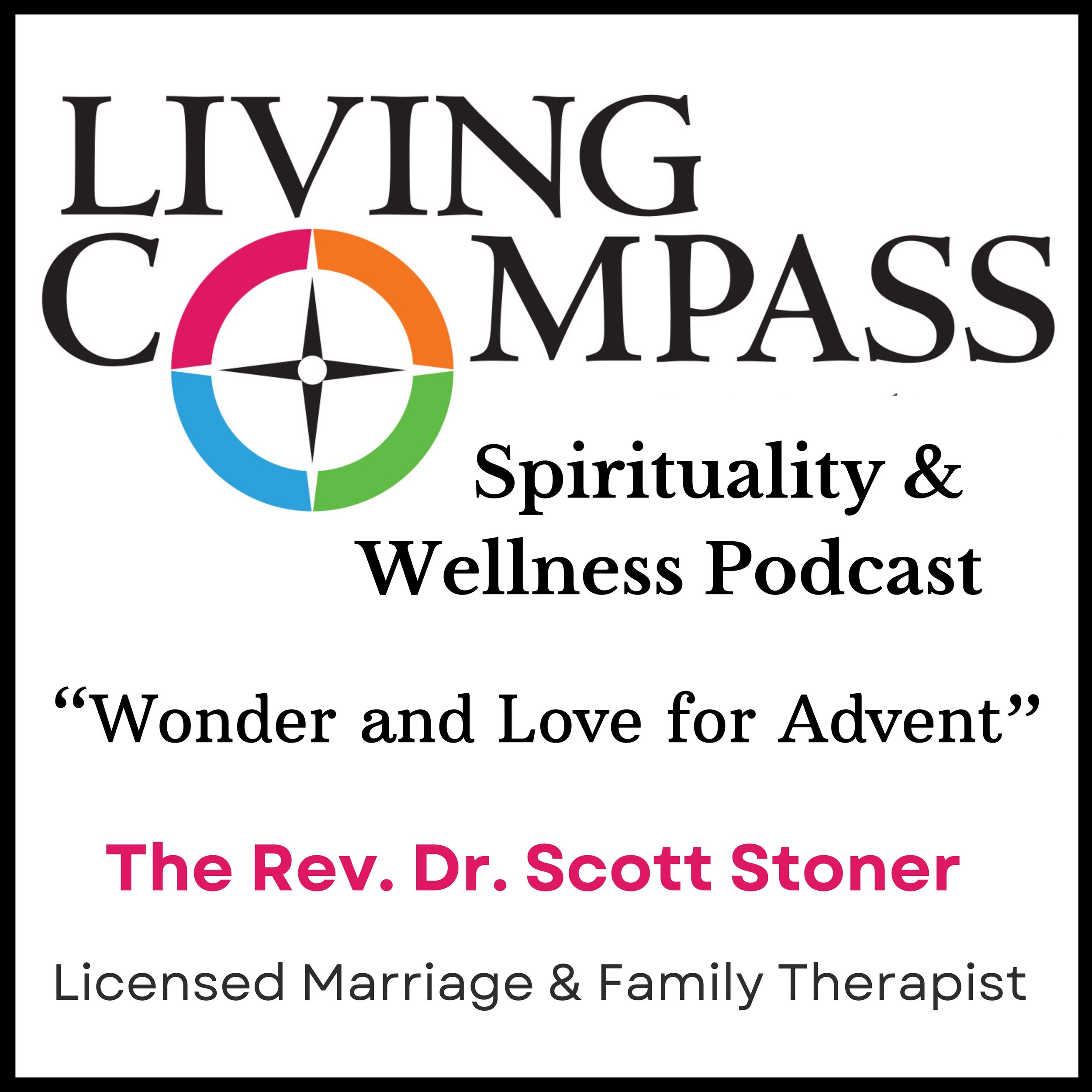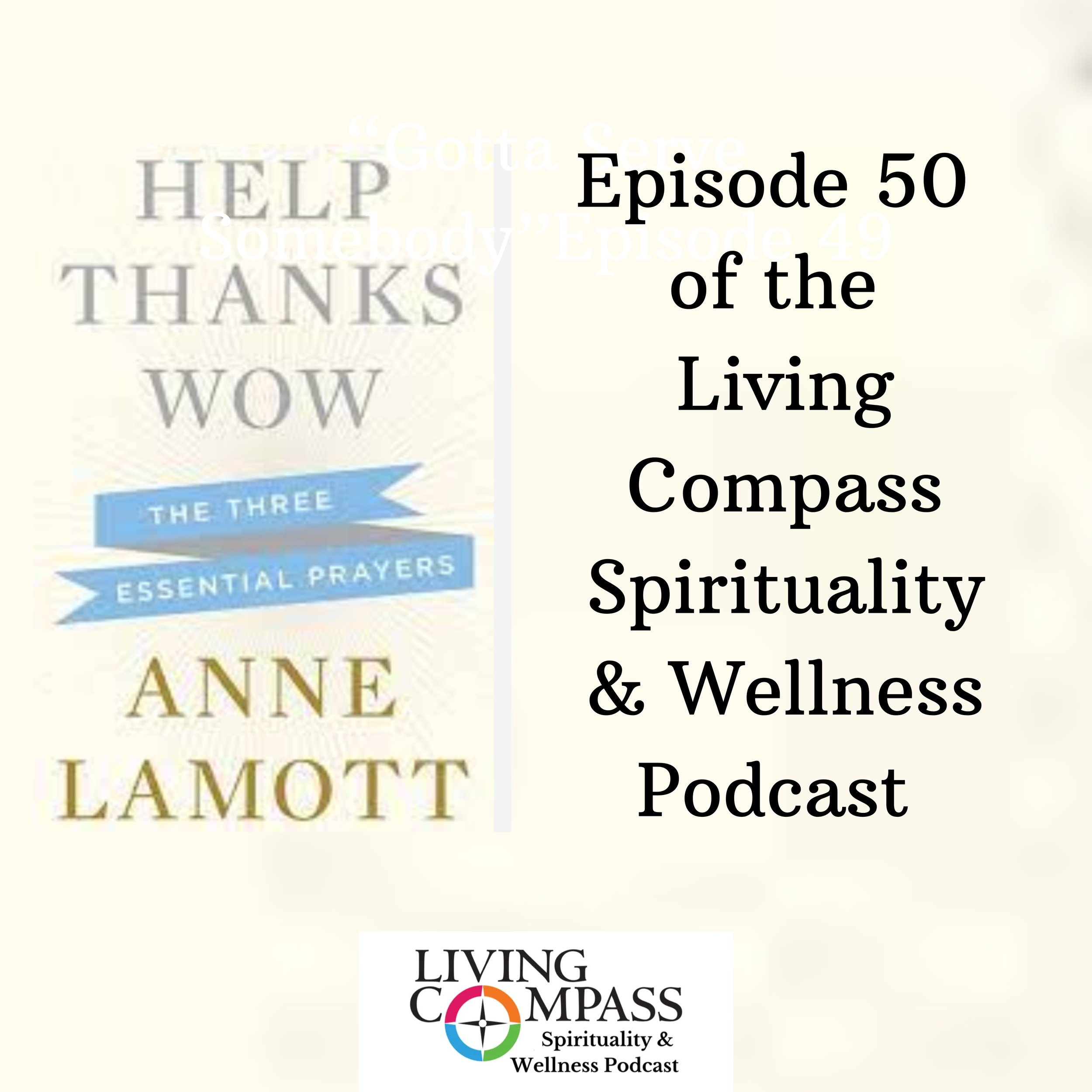(Click the player above to listen to this 6:00 episode.) You can also find this podcast in your favorite podcast app—Apple, Google, Spotify, etc. Search for Living Compass, and be sure to subscribe
Lao Tzu said over 2,000 years ago that "If you do not change direction, you may end up where you are heading." And yet, who amongst us doesn't know how hard it can be to at times make even the smallest change in life? In this episode, Scott gives us some motivation to proactively make the changes we need to make.
Please note—what follows is a transcription of this podcast episode. It may contain errors and it in no way can capture the nuances and emotions of the spoken word. We share it with you for those who prefer to read, or want to read along as the listen to the episode.
Welcome back to the Living Compass Spirituality and Wonders podcast. I am your host, Scott Stoner. And whether you are joining us for the first time or for the 45th time Episode 45 of the Living Compass podcast, we are delighted you are here. Living Compass is an initiative that I started in 2009 that is about the integration of spirituality and wellness integration and my two professional backgrounds as a marriage and family therapist and an Episcopal clergy person. And my personal lifelong journey of integrating spirituality and wellness. I'm delighted that you're interested in this topic, too. We're on this path together. While I have some professional experience in this field. I speak as a fellow traveler. And speaking of a fellow traveler, here's a quote that's related to moving in a certain direction, traveling, if you will, by the ancient Chinese philosopher Lao Tzu. If you do not change direction, you may end up where you are heading. If you do not change direction, you may end up where you are heading. I love that.
I don't know if he had a good sense of humor. He was a wise philosopher. Certainly, But I just love the clever way of saying that. It's so obvious, right? If we keep doing what we've always doing, we'll get the same results. If we keep heading in the same direction. You just may end up where you are heading in Living Compass and in my work and in my life. I just I talk a lot about change because change is difficult.
Habit change is really hard. And so I love this is kind of both a late way, in a serious way to talk about this. If you don't change direction, you'll end up where you're heading. Who amongst us doesn't know that and hasn't known that in some particular aspect of well-being in our life, and yet how hard it is to change the habit loops that we get into the ways that we are constantly doing things that are unfamiliar ways of doing things. It's easier to see it writing outside of ourselves, so I can see it sometimes with an organization that I consult with and say, I consult with the church, for example, and they have been doing the same thing over and over again for a long time in some aspect of their of their organization. And they're frustrated that the results are diminishing, the results are declining as the fruits of that of their effort. And so they keep doing the same thing over and over again, thinking somehow it's going to change at some point. Right. And again, it's easy for me to see that in in someone else, harder for me to see that in my self.
For me, it has been as I grow older, I'm a pretty much a type-A person and I tend to push myself in a lot of things and and I can get by. And that when I was younger, as I get older, though, I can't do that. I don't have the same stamina, the same energy, the same ability to do all the things I used to do. And yet sometimes I forget that and I keep doing things that keep moving in the same direction. And then I wonder why I'm tired or why I get injured or when I'm running or something. And so here's another way in which I see this.
It comes up in relationships a lot. Relationships can get in patterns. We create patterns in relationships, and then the patterns create us. So let's say we have a pattern in a relationship where we don't really talk about conflict. We don't really talk about things that are hard to talk about. And so we just keep moving in that direction. And and the conflict doesn't go away when there is a conflict, but the conflict goes, it increases. And if you try to change that pattern, that direction, you're going to get met with a lot of vulnerability, a lot of anxiety, a lot of resistance maybe from the other person. So you've got to bring the other person into the conversation, you know, hey, I noticed that when every time money comes up around or every time, you know, this comes up in a relationship, we both tend to avoid it. And I wonder if you want to let's reflect on that. I'd like to change that and let's change the direction that we're headed. All of our materials are based on the image of the compass, the living compass, the compass, moral well-being and a compass helps us set check our bearings and set our course.
And we know that if we just change our bearings a little bit, if you change your bearings on a and a trajectory and the movement in which you're moving, whether you're in a ship or on a car or a boat or walking or in your life metaphorically, if you just change it three degrees, it may not seem like much at first, but down the road, over time, you're going to end up in a very different place. You're not going to you know, I ended up heading in the direction that you were heading. You're not going to end up in the in that same place because you've made a change. And so that's everything we're doing the islanders to do, disinviting us, to be proactive about those changes. Because in my case, I know in my life when I'm not proactive about making changes, listening to this warning signs, what we call the whispers, then often I have to make a change because life forces to me are the I. I break down in some way, I get in some conflict, I get stuck in some way, and then I have to make the change. So why not make it proactively? Why not have a sense of humor like this ancient philosopher did?
And just remember that we have agency, we don't have complete agency. We have limits in our lives, of course, but we have agency to make change in our life. So once again, folks, if you do not change direction, you may end up where you are heading. I'm so glad to be heading on this journey of honest in oneness with all of you. We're creating a community here through a living compass on this initiative website, Living Compass Story. We have a Facebook page. The podcast gets posted there. We'd love to hear your comments. Our list. Maybe this quote speaks to you and how it might help you. And until we gather again next week, may you be well, may be happy, may you be a peace and may you remember that you do not change direction. You may end up where you're heading.



















